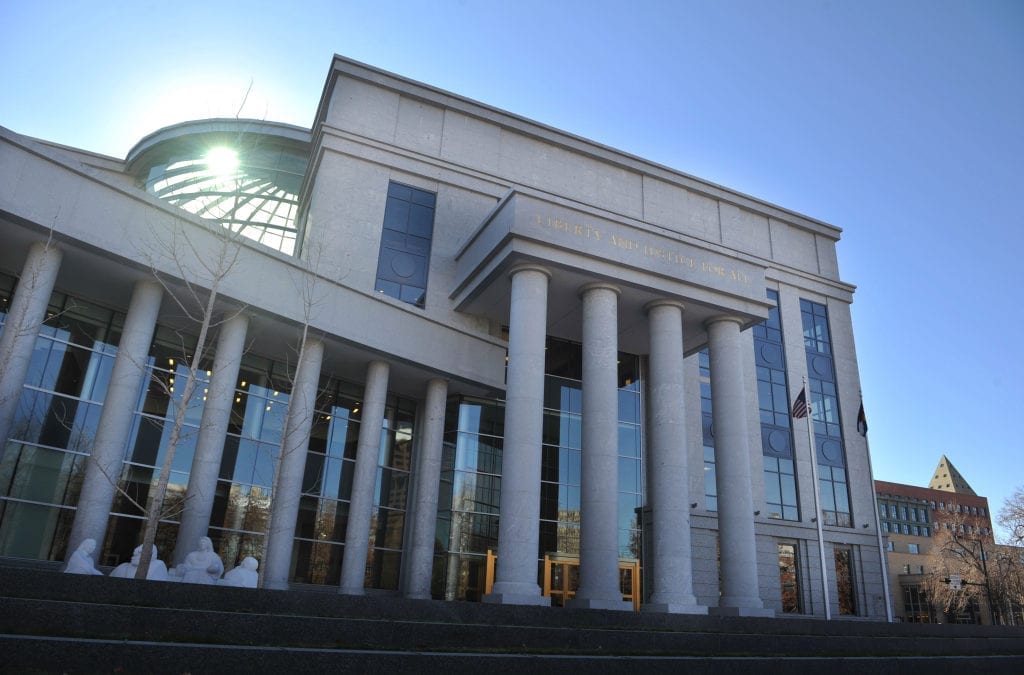The 10 members of the Second Judicial District Performance Commission have a list of 24 Denver judges whose work they must evaluate this year as part of routine reviews.
Over the next several months, the commissioners will interview lawyers, jury members, defendants, plaintiffs and even the judges themselves about those jurists’ performance in the courtroom. It’s part of the process for how Colorado evaluates judges and decides whether to keep them.
In 2022, the performance commission will recommend whether Denver voters should retain those judges or boot them from a courtroom. But there is one thing those commissioners will not have in making their recommendations: the judges’ records from the Colorado Commission on Judicial Discipline.
“I’ll ask, ‘Are any of these judges being investigated?’ All I’ll get is ‘yes or no,’” said Nelson P. Boyle, a Denver lawyer who is chairman of the Second Judicial District Performance Commission. “Really, it just makes our jobs harder trying to figure out who that was and whether it affects our recommendations.”
Colorado’s judicial disciplinary system is under scrutiny after the Colorado Supreme Court last month released a previously secret memo that cited multiple examples of sexual misconduct and harassment by judges, allegations that reached even the highest levels of the judicial branch.
The memo was released after The Denver Post reported Colorado court officials awarded a $2.5 million contract to a former human resources administrator who threatened to tell everything she knew about judicial misconduct. The contract has been dissolved.
The discipline proceedings for judges are so secretive that even those charged with evaluating judges’ work often do not have access to them. Under the state Constitution, investigations are confidential and any admonishment, reprimand or censure is privately issued.
Discipline remains private until the Colorado Commission on Judicial Discipline recommends it become public, and those instances are rare. It would take a statewide ballot measure to change that. Until then, Colorado remains among the most secretive states in the country when it comes to judicial misconduct.
There is a rule that allows the judicial discipline commission’s executive director to disclose a case if he feels it is within the state Constitution’s mandate, said William Campbell, the executive director.
“That’s a long way of saying if they ask us, we can tell them, but it’s on the condition they’re not going to quote us,” Campbell said. “They’re going to have to follow up on their own and get a response from the judge.”
In Colorado, judges are selected and retained through public commissions that are comprised of lawyers and non-lawyers. To become a judge, a nominating commission selects final candidates, who then are appointed by the governor. To remain a judge, performance commissions evaluate their work and then recommend whether voters should retain them or not through a yes or no vote. Statewide, 231 volunteers serve on performance commissions at the state and judicial district levels.
Kent Wagner, executive director of the Judicial Performance Commission, said he routinely asks the disciplinary commission whether there are proceedings against judges who up for retention. If he receives information about disciplinary action toward a judge, he forwards it to the state or district commissions.
“We don’t just necessarily rely on what they give us but we can use it if we can verify it,’” Wagner said. “We don’t get a lot. Obviously, there’s not a lot of complaints.”
The effort to evaluate judges for election retentions is time-consuming, Boyle said. In the run-up to the 2020 general election, Boyle estimated he spent about 200 hours evaluating judges through interviews, reading transcriptions and observing hearings on video. When he asks for judicial disciplinary information, it’s always a relief when the answer is no one on a retention list is under investigation or has a disciplinary record.
If his commission hears that a judge on the list has a record, then he and the other nine members start sleuthing to figure out who it is, he said. They also can directly ask a judge whether or not he has been disciplined.
It would be helpful, Boyle said, if there was something in the state Constitution or law that would make it easier for performance commissions to find out if a judge has a disciplinary record or is under investigation for a credible accusation. The performance commissions don’t need to know about every investigation since so many do not result in disciplinary action.
“If you accept they’re doing their job right, the 95% they throw out I don’t need to know,” Boyle said. “On the flip side, it would make sense if they would have to report to us that this judge in your district is being investigated on a credible claim.”
Chris Forsyth, who heads the Judicial Integrity Project that pushes for stronger judicial accountability in Colorado, said a change could be made through the legislature. But it would be more effective to change the state Constitution so that judicial discipline is not so secretive.
He cited California as an example where private information is shared with other agencies when a judge is being considered for another appointment. California also makes disciplinary proceedings public and publishes decisions in a searchable online database.
“Trying to do some little legislative fix just leaves a lot of problems in place,” Forsyth said. “It would be like replacing the toilet paper holder in a bathroom where the toilet, shower and sink don’t work. I fear it will only harm efforts for the needed substantive reform if the legislature adopted some little tweak to the process. I really don’t like the thought process of trying to do a little rehab when a complete gut is necessary. Such a legislative response to the current scandal is exactly what the Supreme Court wants.”
This content was originally published here.

